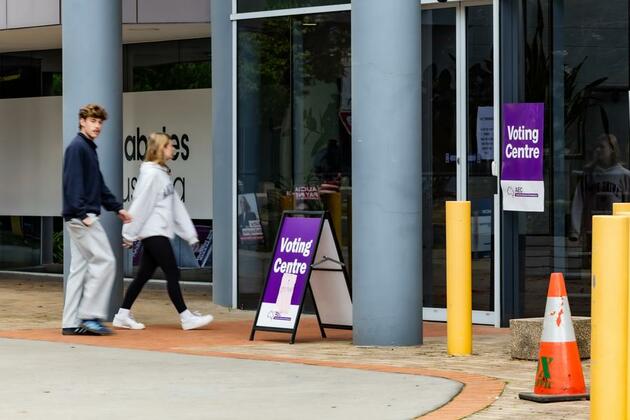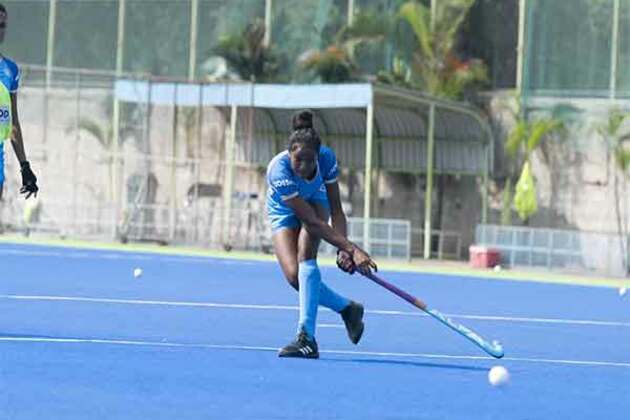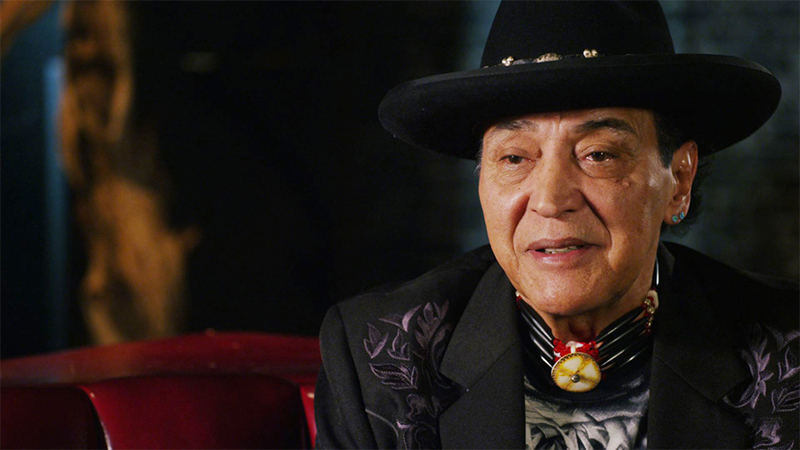How to get consent for sex (and no, it doesn't have to spoil the mood)
The Conversation
24 Nov 2021, 02:08 GMT+10

New South Wales and Victoria are set to introduce a suite of reforms to sexual offences legislation which set a new standard for sexual consent. Both states will implement an affirmative model of consent.
Affirmative consent is based on the idea that someone who is consenting to sex will actively express this through their words and actions - it's the presence of an "enthusiastic yes", rather than the absence of a "no".
So what's changing, and what does that mean for how we negotiate sex?
By law, you will need to actively seek consent
The Victorian and NSW reforms place a higher onus on the accused.
Current legislation stipulates that while any steps taken by the accused to ascertain consent should be taken into account in determining whether their belief in consent was "reasonable", they are not required to have actively sought consent. This means an accused person could argue they had "belief" in consent, without actually taking any action to confirm this belief.
Under the new model, if an accused did not take steps to ascertain consent, their belief in consent is considered to be unreasonable. Silence or a lack of resistance cannot indicate consent.
If an accused wanted to mount a defence that they held a "reasonable belief" in the other person's consent, they would have to demonstrate what steps or actions they took to make sure the other person was consenting.
Read more: NSW adopts affirmative consent in sexual assault laws. What does this mean?
It is hoped this will lead to an emphasis on the actions of the accused, rather than scrutinising the complainant's behaviour. These are important improvements in the way the legal system responds to sexual assault.
No, it doesn't mean signing a consent form
Affirmative consent means all partners should consciously and voluntarily agree to participate in sexual activity.
Responsibility for consent should be mutual, meaning all parties involved need to ensure they have obtained consent.
Affirmative consent can also be withdrawn at any time - it's an ongoing process, not a one off "yes" at the start of an encounter.
Some people suggest affirmative consent makes sex "awkward" or "formulaic". We're often asked if this means we need to have our partners sign a consent form at the beginning of an encounter.
Others say having to constantly "check in" with a partner can spoil the mood or remove the spontaneity of sex.
Not only does an affirmative model help to ensure your partner is actively consenting to sex, it can also help enhance pleasure and fun.
So how do you actually get consent?
Here are some ways you might approach consent under an affirmative model:
Ask your partner how they like to be touched, or what they would like to do. Questions like "how does that feel" or "would you like it if I did XXX" can help ascertain consent but also ensure sex is pleasurable!
Some companies have produced cards to help facilitate this conversation with a partner. Kink communities, such as BDSM groups, often have well-established protocols for talking about consent, and there's arguably much we could learn from them.
Pay attention to all of the cues and forms of communication a partner is using. This includes what they say, but also their body language, gestures, noises, and emotional expression.
If a partner is passive, silent, crying, or looking upset, these are all red flags that they are not consenting. If there's any doubt about whether your partner/s are into what's happening, stop and check in with them again.
If you're still unsure, it's best to end the encounter.
Is the other person intoxicated or drug affected? If so, they might not legally be able to consent to sex. While some people do use alcohol or other drugs to enhance sexual pleasure (for example, in Chemsex), this is something that needs to be carefully negotiated.
Again, if in any doubt, it's always best to stop.
Consider the context, and the nature of the relationship between yourself and your partner/s. For example, are you in a position of power over the other person/people? This could be on account of your age, gender, employment status and so on.
If the answer is "yes", exercise caution. Is it possible the other person could feel pressured or unable to say no to you?
While research suggests non-verbal communication is the most common way people communicate consent, people can misinterpret non-verbal cues. So it's best not to rely on reading non-verbal cues alone.
Try using verbal consent as well (or the use of sign language or written communication for people who are non-verbal). This doesn't have to be awkward, or contractual, and consent can be communicated through dirty talk.
Asking a partner what they like also allows you to learn about their body and what feels good, rather than just guessing what they might find pleasurable.
Beyond affirmative consent
While affirmative consent certainly provides a better framework for sexual communication than just waiting for someone to say "no" (or simply assuming the other person consents), it also has limitations.
People may still affirmatively consent to sex they do not want for various reasons. Consenting to sex may be the safer option in an abusive relationship, for example. People also often engage in sex due to peer pressure or because they feel it is their duty as a partner.
Read more: Not as simple as 'no means no': what young people need to know about consent
Our sexual scripts and dominant gender norms can also make it difficult to enact affirmative consent in practice.
Young women, for example, are often socialised to be polite, compliant, and pleasing to others. Sexual double standards presenting women as "sluts" or "whores" for actively engaging in and enjoying sex persist. As a result, it can be difficult for some women to openly express their sexual wants and desires.
Affirmative consent is less able to take into account the broader structural and social factors that make saying "yes" or "no" difficult, or that mean we sometimes "consent" to unwanted sex.
While affirmative consent is vital, you might also want to think about how you can ensure your partners feel comfortable and safe to express their needs, desires, and what feels good.
You also want to make sure they feel comfortable to say "no" at any time without any ramifications.
Authors: Bianca Fileborn - Senior Lecturer in Criminology, The University of Melbourne | Sophie Hindes - PhD Candidate, The University of Melbourne 
 Share
Share
 Tweet
Tweet
 Share
Share
 Flip
Flip
 Email
Email
Watch latest videos
Subscribe and Follow
Get a daily dose of Australian Herald news through our daily email, its complimentary and keeps you fully up to date with world and business news as well.
News RELEASES
Publish news of your business, community or sports group, personnel appointments, major event and more by submitting a news release to Australian Herald.
More InformationInternational
SectionFAA acts to prevent midair collisions near Las Vegas airport
WASHINGTON, D.C.: This week, the Federal Aviation Administration (FAA) said it is taking steps to stop collisions between helicopters...
Trump and Zelenskyy meet in private at Pope Francis funeral
THE VATICAN - U.S. President Donald Trump met privately with Ukrainian President Volodymyr Zelenskyy in St. Peter's Basilica in Vatican...
Kennedy and Makary say FDA will phase out synthetic food dyes
WASHINGTON, D.C.: This week, Health Secretary Robert F. Kennedy Jr. and FDA Commissioner Marty Makary said they plan to remove artificial...
Trade talks to target India’s digital market rules
WASHINGTON, D.C.: The United States plans to press India for sweeping changes to its e-commerce policies as part of negotiations aimed...
UK and New Zealand to boost defence ties
LONDON, U.K.: British Prime Minister Keir Starmer and New Zealand Prime Minister Christopher Luxon decided to strengthen their countries'...
US FDA halts dairy testing program due to staff shortage
WASHINGTON, D.C.: The U.S. Food and Drug Administration (FDA) is stopping a quality control program that tests milk and other dairy...
Sydney
SectionGlobal leaders call upon PM Modi, condemn Pahalgam terror attack, offer support to India
New Delhi [India], April 27 (ANI): As the nation continues to mourn and cries of outrage echo across the country following the April...
China serious about winning gold at LA Olympics: Former Australia captain Steve Waugh
London [UK], April 27 (ANI): Cricket legend Steve Waugh believes China could become a major force in world cricket as the sport moves...
PM Albanese warns Australians to take rise of far-right "seriously" ahead of election
Voters enter a polling station for Australia's general election in Canberra, Australia, on April 26, 2025. (Photo by Chu Chen/Xinhua)...
(SP)CHINA-XIAMEN-ATHLETICS-DIAMOND LEAGUE-WOMEN'S HIGH JUMP(CN)
(250426) -- XIAMEN, April 26, 2025 (Xinhua) -- Yaroslava Mahuchikh of Ukraine competes during the women's high jump event at the 2025...
Indian Women's Hockey Team goes down 3-5 to Australia A in opening match of tour
New Delhi [India], April 26 (ANI): The Indian Women's Hockey Team fought valiantly but fell short in their opening game of the Australia...
Ex-Indian coach Shastri earmarks young IPL quartet for greater international success
Mumbai (Maharashtra) [India], April 26 (ANI): Former Indian head coach Ravi Shastri named a few up-and-coming Indian youngsters performing...













